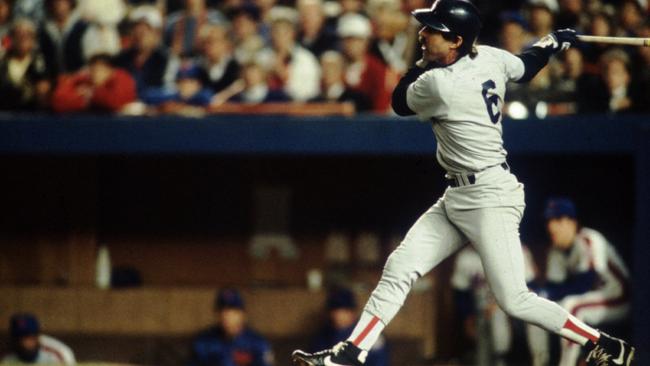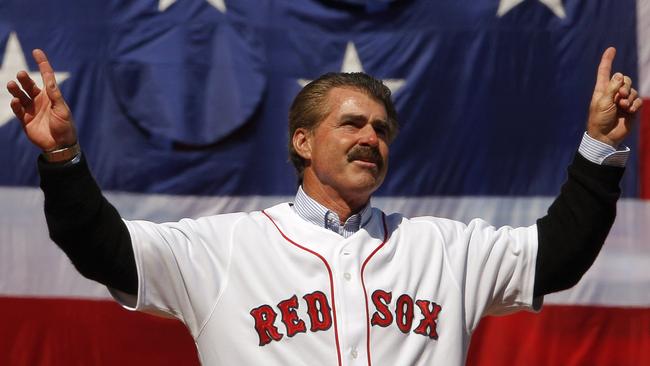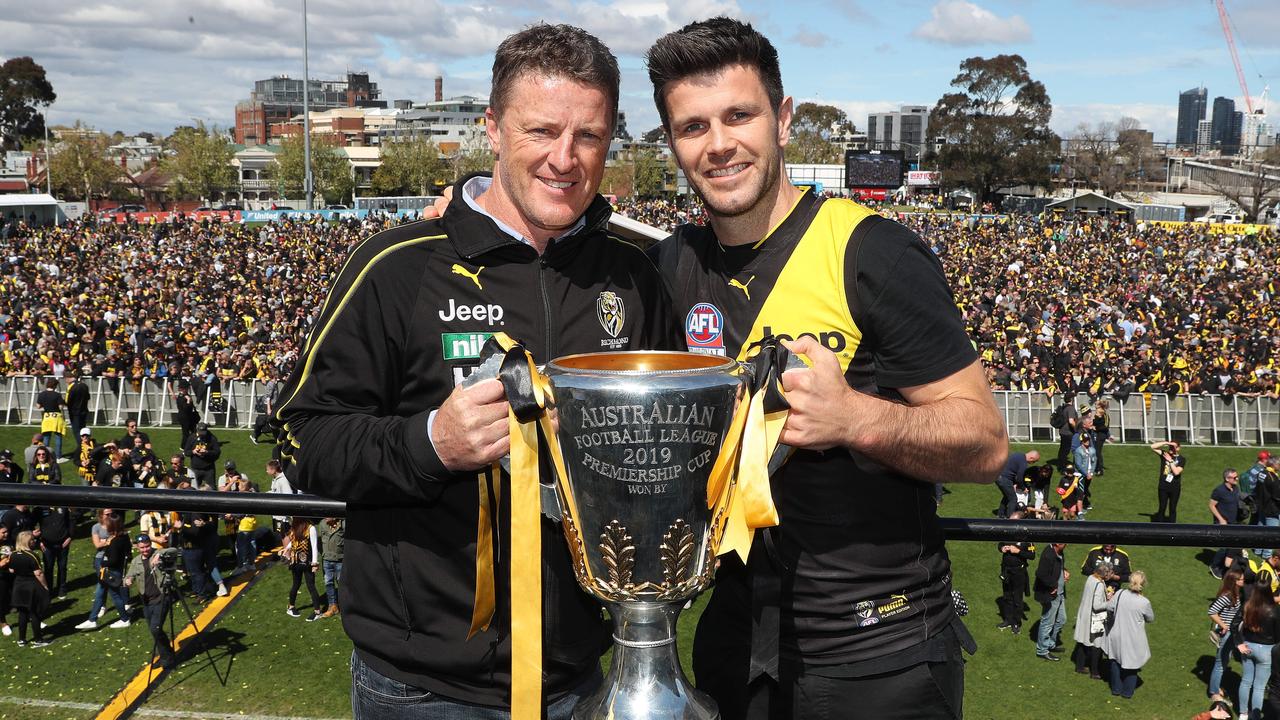It only takes one mistake to go from glory to pain in sport - endless pain for some heroes
Today, being referred to as the “GOAT” is a great tribute in sport. But once being a “goat” was anything but kind - as is remembered with Boston Red Sox first baseman Billy Buckner.

Michelangelo Rucci
Don't miss out on the headlines from Michelangelo Rucci. Followed categories will be added to My News.
- Sign-up on the Rucci’s Roast newsletter
- Reality Bites: Best sports gossip in town
- Goodes doco will spark questions
- Hall cannot be hijacked by AFL
Once upon a time, no-one in sport wanted to be a “goat” - the ultimate sledge in American sport.
The “goat” was any sportsperson who failed “garishly, hilariously, and at the worst possible time”. Sports Illustrated traces the rise of the “goat” to mock an athlete to a baseball game in 1908 when teenager Fred Merkle, playing for the New York Giants, failed to touch second base on a walkoff single against the Boston Braves.
Merkle was called out, the game was replayed a week later - and the Giants lost, costing the team a play-off berth. Merkle was forever cast as a “goat”.
In the past decade “goat” has become the “GOAT” - the Greatest Of All Time - taking a sporting label from one extreme to another.
In the list of “goats” - such as South African Herschelle Gibbs dropping Australian captain Steve Waugh at the 1999 one-day cricket World Cup when trying to throw the ball in the air in premature celebration - there is one who was hounded for too long.
In American baseball, the name Billy Buckner has carried the “goat” theme since 1986. Unfairly many have said, particularly last week when the man who confirmed the Boston Red Sox were cursed died, aged 69.
It seemed every obituary dedicated to Buckner had to refer to Game 6 of the 1986 World Series against the New York Mets - and that moment that supposedly (but did not) cost the Red Sox the title to extend the curse to its 68th year.

Buckner was at first base at New York’s Shea Stadium, across the railway line from the Flushing Meadow centre for the US Open tennis championships, on October 25, 1986. The scores were tied at 5-5 in the 10th inning - and Buckner misfielded Mookie Wilson’s ground ball down the line to first base, allowing Mets third baseman Ray Knight to score the winning run from second base.
As the Boston Globe’s grand baseball writer Dan Shaughnessy - the author of the books that defined the Red Sox’s failures in the 20th century to the curse from selling Babe Ruth to the New York Yankees - notes, Buckner carried the “goat” tag unfairly in life ... and even in his death last week.
“Buckner’s error did not lose the World Series,” Shaughnessy wrote. “Not even close. It was merely the final play in a game that was already tied. And it was only Game 6. The Sox did not lose the Series until two nights later. The Sox had a million other chances to win that World Series. But Buckner’s error became the worldwide metaphor for cataclysmic failure. It was cinematic sports shorthand for hideous defeat.”
In an era when so many AFL players are - as Crows forward Josh Jenkins noted last week - at risk of mental health issues from harsh criticism, Buckner is the chilling example of how sporting heroes carry the agony of defeat at a costly personal level.
“I don’t think it ever entered (Buckner’s) mind at the time that he was going to have to wear (the 1986 moment) for the rest of his career,’’ team-mate Bruce Hurst said in his tributes to Buckner.

Despite a grand career - with more hits on his Major League record than two of the game’s legends, Joe DiMaggio and Ted Williams - Buckner in 1993 tired of the public searchlight that kept the 1986 World Series being replayed against him. He “checked out” taking his family to a ranch at Meridian, Idaho.
It was not until the Red Sox were repeat World Series winners this century that Buckner returned to the grand baseball cathedral at Fenway Park to take a standing ovation from the Red Sox fans at the start of the 2008 season.
To live through more than two decades as the “goat” is now regarded as unfair on Buckner. While so many of the obituaries began on that moment in Game 6 of the 1986 World Series, ultimately the general conclusion was of a sportsman ill-treated at the time and through time.
Shaughnessy: “For the final 33 years of his life, Buckner was best known as the guy who missed the ground ball. For many fans and media members, it defined him. And it was unfair.”
Author Kevin Cook: “It was his misfortune that Mookie Wilson hit a grounder at him in the 1986 World Series. Buckner’s error was all anyone remembered.
“Long forgotten is what Buckner had to do in order to reach that moment. As unlucky as Buckner was in some departments, there is so much to celebrate (in his career).”
Former New York Times sports columnist George Vecsey: “He deserved more decades, more salutes, as a superb player who had a bad moment.”
Buckner could have been among the GOATs of American sport had the Red Sox not been cursed. His carrying the pain of that curse for so many years after the 1986 World Series seems one of sport’s terrible notes.
michelangelo.rucci@news.com.au


